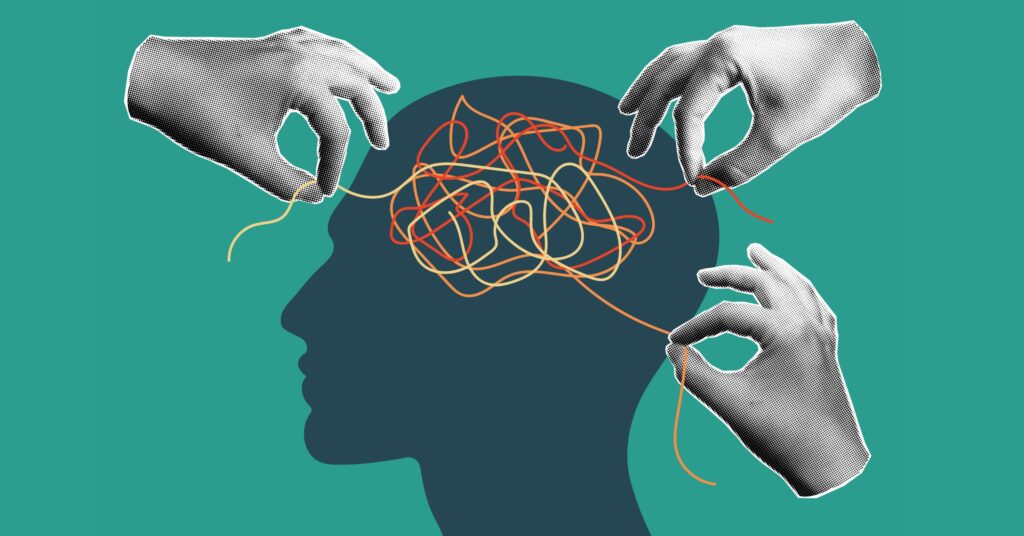How Normalization and Validation Help in Grief
/ General : Eleanor Haley
For further articles on these topics:
Do complicated hardships require equally big and complex ways to cope?
Not always, especially not with something like grief. Grief is not a problem to be solved but an experience that becomes an ongoing part of one's life. Dealing with grief as it ebbs and flows over time requires ongoing coping that takes many shapes and forms. Some of the approaches you choose may seem significant, while others will feel like subtle shifts in understanding and responding.
Personally, I've found that many of the most helpful resources and supports seem small in the grand scheme of things. Simple acts of coping, baby steps, moments of comfort and support -- though these things may seem tiny compared to the darkness the grieving person faces, the reality is that sometimes even the smallest light can help your eyes adjust and see.
Case in point, it seems almost too simple when we tell people that, for many, the most helpful thing at the outset of grief is having their experiences normalized and their feelings validated. But over the years, time and again, we've found that experiencing this kind of acceptance for one's grief can go a long way when adjusting to life after loss.
What are Normalization and Validation?
Normalization:
Because the experiences a person goes through after loss can be highly distressing and extremely out of the ordinary for their lives, it's common for a person to worry they're abnormal, permanently broken, or doing grief wrong. Before experiencing grief, a person may have a picture of what they think grief looks like, and any deviations from their expectations may feel like a sign that something is wrong.
For this reason, one of the most important first steps in understanding one's grief is expanding one's definition of "normal" in the context of grief and seeing how your own thoughts, feelings, and behaviors fit within the broad range of what can be considered normal functioning in the wake of loss.
Validation:
Too often, in grief, we see people disenfranchising their own grief experiences or the experiences of others. Judgments about what one should or should not think, feel, and do are common. As are ideas about who is and is not entitled to grief.
Validation in grief simply means recognizing and acknowledging a person's thoughts and feelings, that they have a right to those thoughts and feelings, and that these things matter.
How do Normalization and Validation Help in Grief?
Our Expectations About Grief are Often Wrong:
Though the narrative is gradually changing in our society, the most common piece of pop psychology people know about grief is the Five Stages of Grief. Unfortunately, these stages are also not an accurate depiction of grief, which means the one thing most people think they know about grief is a myth.
It is common to enter grief with a set of assumptions about what it will be like. These ideas can stem from various sources, such as TV and movies, past experiences, or observing others go through grief. However, as you may have already realized, grief rarely aligns with these expectations.
When grief diverges from our expectations, some individuals might say, 'Oh, this isn't at all what I anticipated; let me reevaluate my understanding and expectations.' On the other hand, some will panic and say, "This is not what I expected; something must be wrong." or "I'm not coping right." or "I can't cope with this." Realistically, most people will oscillate between the two—sometimes accepting their experiences and sometimes worrying they're abnormal or wrong.
Flexibility, adaptability, and ongoing acceptance of our grief responses can be beneficial. Adopting this stance can be challenging, but we should strive towards it anyway. Something that can assist us in doing this is, you guessed it, understanding there are far more versions of "normal" grief than we could have ever imagined. If we can accept this as a true about grief, then we open up space to say, "This isn't what I expected, but that doesn't mean it's wrong."
Something else that helps is knowing our emotions are valid, regardless of what they are. They are neither good nor bad, right or wrong. They exist for a reason, and though they may feel distressing to the person experiencing them, in the context of grief, they are likely not abnormal. As Viktor Frankl said in his book Man's Search for Meaning, "An abnormal reaction to an abnormal situation is normal behavior."
It Helps to Know We're Not Alone
When someone feels their experiences are abnormal, wrong, shameful, or invalid, they may also end up feeling different, alone, or disenfranchised. Of course we believe all pain deserves compassion and support. However, we know that when people feel these ways, they may resist, avoid, or hide their experiences, ultimately preventing them from receiving needed support or interpersonal connections.
We've found that it helps people to know they are not the only ones to experience a particular grief-related thought or emotion. Take the experience of relief in grief, for example. Relief is a typical grief response, but many people feel their relief is shameful and wrong. They may think it's a sign they're relieved someone died when, in reality, it probably only means they are relieved that pain and suffering of some sort is over. But because the person feels guilty, they keep it secret, potentially never opening themselves up to (1) learning that others are having the same experience or (2) coming to understand what their relief actually represents in their grief.
In her work on self-compassion, Kristen Neff emphasizes the power of recognizing our shared humanity. Our shared humanity shows us that suffering is a part of life. All humans experience suffering in some shape or form, so no one is alone in their pain. You may not be able to relate exactly to someone else's pain or grief, but you can understand how devastating these things can be because you have been there. And so, in a way, pain connects us. We are not alone.
The following are a few articles that might be helpful to anyone needing a little normalization and validation:
- Your Grief Feels Enormous When Someone Dies: Here's Why
- Grief Emotions Aren't Good or Bad, They Just Are
- What Does Grief Feel Like?
- Grief Makes You Feel Like You're Going Crazy
- What the Newly Bereaved Should Know
- Grief is Human, So Let's Talk About It







Janet A June 30, 2024 at 3:38 pm
It was very helpful to me to read that acceptance means to tolerate. That is all I will ever be able to do. My husband to whom I was married close to 61 years died in March 2024 and I am really struggling. He was very sick for over 4 years, in the hospital critically ill at least 4 times with sepsis, pneumonia, and respiratory and kidney failure, but kept “coming back”. But each time he was a little more diminished. He really fought to live til he was completely worn out. He refused to believe he was dying and talked about riding his motorcycle this summer. I knew that couldn’t happen, but part of me thought that he might not die. But it doesn’t make it any easier, him being sick for so long. He was my soulmate and I miss him with every fiber of my being. I’m 80 now and we were together since I was 17.
Marilyn June 29, 2024 at 9:42 pm
My therapist recently had to retire because she needs an organ transplant. The loss for me has been overwhelming and I have felt very alone and unable to share my feelings. Everyone thinks of grief and loss related to death. Since she retired I have felt numb, angry, sad, confused. And not well. I have had headaches, poor appetite, lost weight, and have not been able to find another therapist. I need some help so that I don’t carry this suffering within.